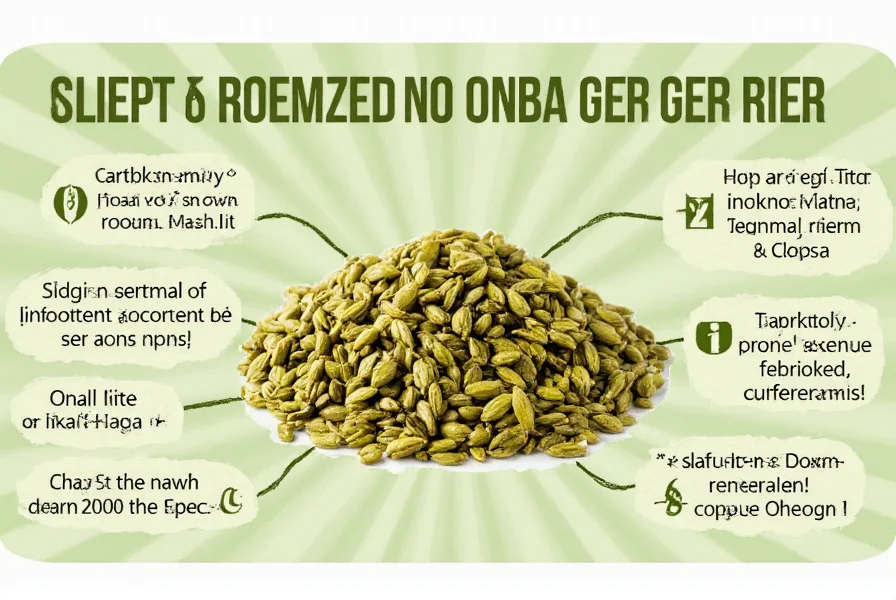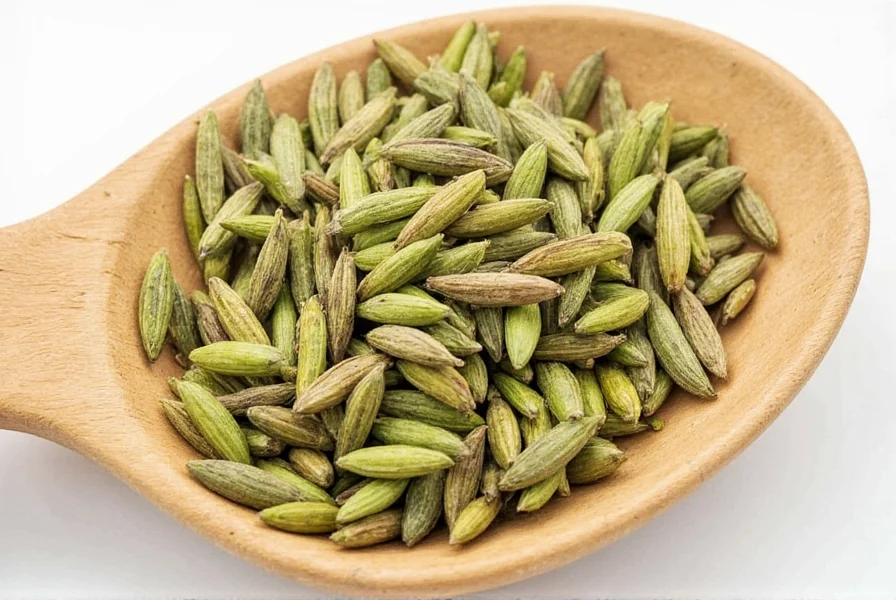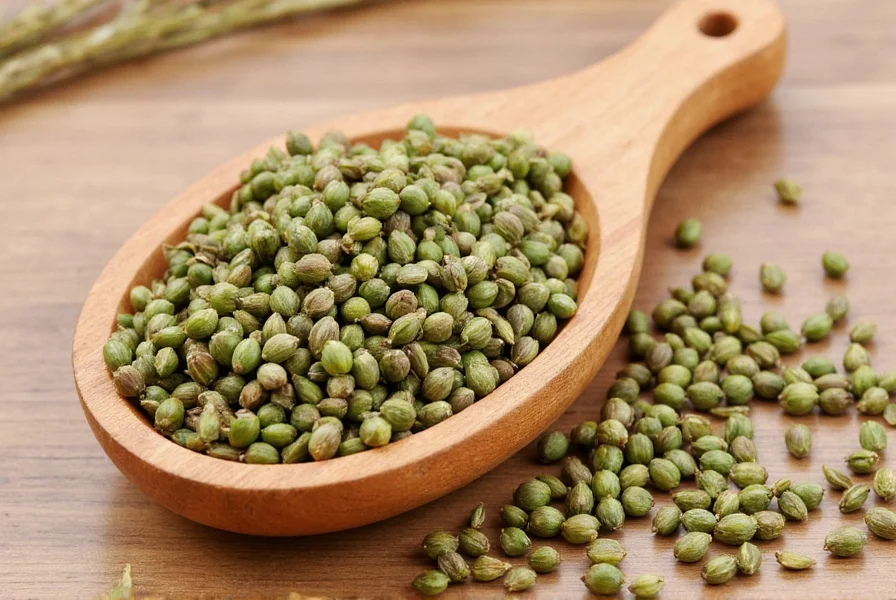Cardamom, one of the world's most ancient spices, has been used for centuries in traditional medicine systems across Asia and the Middle East. This aromatic seed pod from the Elettaria cardamomum plant contains numerous bioactive compounds that modern science is beginning to validate for their potential health-supporting properties. While not a miracle cure, emerging research reveals how this culinary staple may contribute to wellness when incorporated as part of a balanced diet.
Nutritional Profile of Cardamom
Beyond its distinctive flavor, cardamom packs a nutritional punch in small quantities. A single teaspoon (about 2 grams) of ground cardamom provides:
| Nutrient | Amount per Teaspoon | % Daily Value |
|---|---|---|
| Calories | 8 kcal | 0.4% |
| Dietary Fiber | 0.6 g | 2% |
| Vitamin C | 1.8 mg | 2% |
| Calcium | 17 mg | 1.3% |
| Magnesium | 8 mg | 2% |
| Potassium | 38 mg | 1% |
More importantly, cardamom contains over 300 identified phytochemicals, including terpenes, flavonoids, and phenolic compounds that contribute to its potential health properties of cardamom. The most studied compounds include 1,8-cineole (also called eucalyptol), limonene, and linalool.
Scientifically Studied Health Properties of Cardamom
Powerful Antioxidant Activity
Cardamom ranks among the spices with highest antioxidant capacity. Research published in the Journal of Agricultural and Food Chemistry found cardamom extract demonstrated significant free radical scavenging activity, comparable to other antioxidant-rich spices like cloves and cinnamon. The primary antioxidants in cardamom—particularly 1,8-cineole and limonene—help neutralize oxidative stress that contributes to chronic diseases. Understanding cardamom antioxidant properties is essential for evaluating its potential health contributions.
Anti-Inflammatory Effects
Chronic inflammation underlies many modern diseases. Laboratory studies indicate cardamom compounds may inhibit inflammatory pathways. A 2020 study in Nutrients showed cardamom extract reduced markers of inflammation in cell cultures. While human trials are limited, research on cardamom anti-inflammatory effects suggests potential benefits for conditions like arthritis when consumed regularly as part of an anti-inflammatory diet.
Digestive Health Benefits
Traditional medicine systems have long used cardamom for digestive issues, and modern science provides some support. Research indicates cardamom may stimulate digestive enzymes and reduce intestinal spasms. A clinical trial published in Complementary Therapies in Clinical Practice found that cardamom supplementation reduced symptoms of irritable bowel syndrome in participants. The potential digestive health benefits of cardamom make it valuable for those seeking natural digestive support.
Cardiovascular Support
Preliminary research suggests cardamom may support heart health through multiple mechanisms. Animal studies show cardamom supplementation can lower blood pressure and improve lipid profiles. A small human study in Indian Journal of Biochemistry and Biophysics found that consuming 3 grams of cardamom powder daily for 12 weeks significantly reduced blood pressure in adults with stage 1 hypertension. While more extensive human trials are needed, these findings on cardiovascular benefits of cardamom are promising.
Blood Sugar Regulation
Emerging evidence suggests cardamom may help regulate blood glucose levels. Research in diabetic rats showed cardamom extract improved insulin sensitivity and reduced blood sugar levels. A human study in Clinical Nutrition Research noted modest improvements in fasting blood glucose among participants consuming cardamom. Though not a substitute for diabetes medication, understanding cardamom blood sugar effects could inform dietary approaches for metabolic health.
Respiratory Health Properties
The cineole in cardamom has demonstrated expectorant and bronchodilatory effects in laboratory studies. Traditional Ayurvedic medicine has used cardamom for respiratory conditions, and modern research supports some of these applications. A study in Phytotherapy Research found that cineole reduced airway inflammation in animal models. While not a treatment for respiratory diseases, cardamom respiratory benefits may complement conventional approaches for minor respiratory discomfort.
Oral Health Applications
Cardamom's antimicrobial properties make it valuable for oral health. Research shows cardamom extract inhibits growth of oral pathogens including Streptococcus mutans, a primary cause of tooth decay. Its pleasant aroma also makes it a natural breath freshener. Studies on cardamom oral health benefits suggest chewing whole cardamom pods may reduce bad breath more effectively than commercial mints.
Limitations of Current Research
While the potential health properties of cardamom are promising, important limitations exist:
- Most studies use concentrated extracts rather than culinary amounts
- Human clinical trials are limited in number and scale
- Long-term effects of regular consumption aren't well documented
- Optimal dosage for specific health benefits remains unclear
Researchers emphasize that cardamom should be viewed as part of an overall healthy lifestyle rather than a standalone treatment. The current understanding of cardamom medicinal properties requires further investigation through rigorous human trials.
Incorporating Cardamom Into Your Diet
To maximize potential health benefits of cardamom while enjoying its flavor:
- Use whole pods in rice dishes, soups, and stews (remove before serving)
- Add ground cardamom to smoothies, oatmeal, or yogurt
- Brew cardamom tea by steeping crushed pods in hot water
- Combine with other antioxidant-rich spices like cinnamon and ginger
- Store in airtight containers away from light to preserve potency

Safety Considerations
Cardamom is generally recognized as safe when consumed in culinary amounts. However, those considering medicinal use should note:
- May interact with blood-thinning medications due to potential anticoagulant effects
- Large medicinal doses might lower blood pressure excessively when combined with hypertension medications
- Some individuals may experience allergic reactions, particularly those sensitive to other spices
- Pregnant women should consult healthcare providers before using cardamom medicinally
The research on cardamom health effects suggests it's safe for most people when used as a spice, but therapeutic applications require professional guidance.

Conclusion: Cardamom's Place in a Healthy Lifestyle
Cardamom offers more than just distinctive flavor—it contains bioactive compounds with scientifically supported antioxidant, anti-inflammatory, and digestive properties. While current research on health properties of cardamom shows promise, most evidence comes from laboratory and animal studies, with limited human clinical trials. As part of a diverse, plant-rich diet, cardamom can contribute to overall wellness without significant risk for most people. Future research may clarify optimal dosages and specific applications, but for now, enjoying this ancient spice as part of culinary traditions represents a safe and potentially beneficial practice.
Frequently Asked Questions
What are the most scientifically supported health benefits of cardamom?
The most scientifically supported benefits include antioxidant activity (particularly from 1,8-cineole), anti-inflammatory effects, and digestive support. Research shows cardamom contains compounds that neutralize free radicals and may reduce markers of inflammation. Studies also indicate potential benefits for digestive health, including reduced symptoms of irritable bowel syndrome. While promising, most evidence comes from laboratory and animal studies, with limited human clinical trials.
How much cardamom should I consume daily for health benefits?
There's no established therapeutic dosage, but culinary use of 1-3 grams (about 1/2 to 1 1/2 teaspoons) daily appears safe and potentially beneficial based on available research. A study showing blood pressure benefits used 3 grams daily. For general health, incorporating cardamom as a spice in cooking—such as adding to tea, rice dishes, or baked goods—provides exposure to its bioactive compounds without risk of overconsumption.
Can cardamom help with digestion and bloating?
Yes, research supports cardamom's traditional use for digestive issues. Studies indicate cardamom may stimulate digestive enzymes, reduce intestinal spasms, and alleviate symptoms of irritable bowel syndrome. The compounds in cardamom appear to have carminative effects that help reduce gas and bloating. Chewing whole cardamom pods after meals is a traditional practice for improving digestion that has some scientific backing.
Are there any side effects of consuming too much cardamom?
When consumed in typical culinary amounts, cardamom rarely causes side effects. However, excessive consumption (several grams daily over extended periods) might lead to digestive discomfort in sensitive individuals. Those on blood-thinning medications should consult their doctor, as cardamom may have mild anticoagulant effects. People with gallstones should use caution as cardamom may increase bile production. As with any spice, allergic reactions are possible though uncommon.
How does cardamom compare to other spices for health benefits?
Cardamom ranks among the top spices for antioxidant capacity, comparable to cloves and cinnamon. While turmeric contains curcumin (with extensive research for inflammation), cardamom offers different bioactive compounds like 1,8-cineole that provide complementary benefits. The most effective approach is consuming a variety of spices, as each offers unique phytochemical profiles. Cardamom's advantage lies in its versatility—it pairs well with both sweet and savory dishes, making regular consumption practical.











 浙公网安备
33010002000092号
浙公网安备
33010002000092号 浙B2-20120091-4
浙B2-20120091-4